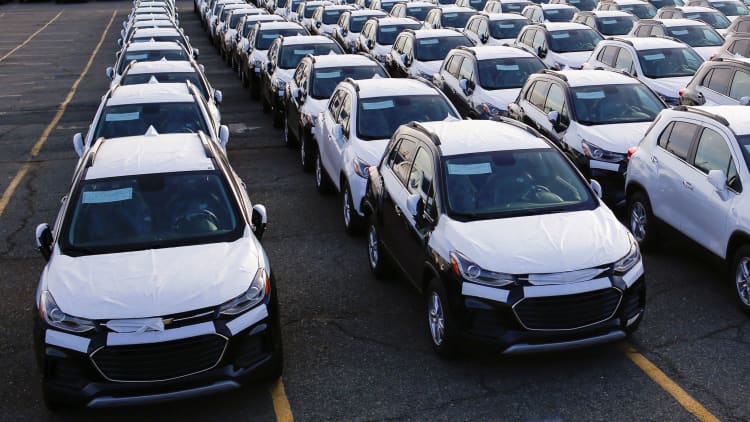
German auto manufacturers are nervously waiting to see if President Donald Trump will act on a secret Commerce Department report on how imported car parts might affect national security.
Trump has complained about the German cars' presence on U.S. streets and tweeted threats to tax European, and particularly German, automakers' vehicles.
It is thought the "232" report, as it is informally referred to, could recommend tariffs as high as 25 percent on auto parts and cars imported into America.
Speaking Wednesday, the U.S. leader said he was prepared to introduce auto tariffs if a wider trade deal with the EU cannot be renegotiated.
"We're trying to make a deal, they're very tough to deal with," said Trump before adding "if we don't make a deal, we'll do the tariffs."
Auto analysts Evercore ISI has stated that based on a 25 percent import tariffs, Germany's big three auto firms would see an immediate 6.25 billion euro ($7 bn) hit to earnings before interest and tax each year.
Under their model, Volkswagen Group would lose around 2.5 billion euros while Mercedes-maker Daimler would suffer a 2-billion-euro loss and BMW would see earnings fall by 1.7 billion euros.
That estimate was given serious credibility on Thursday when VW CEO Herman Diess told the Financial Times that import tariffs could cost German OEMs "billions of euros" a year and further agreed that in a "worst case scenario", tariffs could cost VW as much 2.5 billion euros each year.
Evercore ISI told CNBC Thursday that they hosted an analyst conference call this week in which the key conclusion was that the risk of US/EU tariffs remained high.
Speaking on the call, Jeffrey Schott of the Peterson Institute for International Economics put a "50 percent plus probability" of some form of auto tariffs because of an "unbridgeable gap" when it comes to trade negotiations between Washington and Brussels.
What is the 232?
Section 232 of the Trade Expansion Act of 1962 authorizes the President of the United States to adjust the imports of goods or materials from other countries if it deems the quantity or circumstances threaten national security.
Trump received the "Section 232" document on imported car parts from the Commerce Department over the weekend and now has ninety days to announce tariffs or other restrictions, based on its recommendation.
However, the U.S. president has been warned by both Democratic and Republican lawmakers that use of 232 is inappropriate as well as potentially damaging to the U.S. auto industry which relies on parts from overseas.
Republican Senator for Ohio, Rob Portman, tweeted Wednesday that he hoped the Trump administration would move away from imposing auto tariffs.
https://twitter.com/senrobportman/status/1098290339163635712
A 25 percent tariff on imported trucks and SUV's already exists. BMW, Volkswagen and Daimler now build SUV's in South Carolina, Tennessee, and Alabama respectively.


